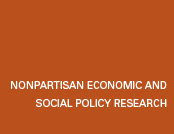Abstract
Immediate concerns over swine flu might be waning, but public health and government officials continue their fight against the illness, directing people with flu symptoms to see their doctor. But advice like this takes for granted a well-functioning health care system. Many Americans don't have a doctor to contact, either because they don't have health insurance or because primary-care physicians are in seriously short supply.
"Contact Your Doctor": Bad Advice?
Robert Berenson
Immediate concerns over swine flu might be waning, but public health and government officials continue their fight against the illness. However, they take for granted that a core defense is a well-functioning health care system.
Dr. Richard Besser, the acting director of the Centers for Disease Control and Prevention, calmed those concerned about having flu-like symptoms with this advice: “contact [your] doctor and determine what type testing and treatment is indicated.”
A major problem with this advice is that many Americans don’t have a doctor to contact because they don’t have health insurance. Yes, government-funded community health centers offer a partial safety net, but for increasing numbers of Americans, their doctor is the emergency room. Reportedly, ER demand by those who don’t have a doctor is already surging, straining hospitals’ capacity to respond to true emergencies.
The ER route also drives up health care costs. That’s because ER clinicians have ethical and legal obligations to perform a much more detailed evaluation of patients they do not know and often with no personal physician to give follow-up care. Conversely, office- and clinic-based physicians with established doctor-patient relationships can often postpone high-priced tests or interventions that might not be necessary since they can respond quickly to any turn for the worse (or better, for that matter). Indeed, that’s what the millions of Americans who have taken officials’ responses to contact their doctor can count on.
Insurance costs also reflect demographics. If Congress and the political leaders in the administration who are working to expand insurance coverage require virtually all Americans to purchase basic coverage, as Massachusetts did in 2006, even the “young invincibles” will have to jump in the system. These healthy twenty-somethings otherwise might not opt for the security that health insurance provides but could nevertheless experience a devastating injury or illness for which the rest of us wind up paying.
Perhaps because they are more footloose than the rest of us, teenagers and young adults are being harder hit by swine flu, and even those who stay healthy now will inevitably need a personal physician who knows them and can provide care when they do get sick or hurt. That’s why they should buy into the system and pay their fair share.
The other reason that too many Americans don’t have a doctor they call their own is that primary-care physicians are in seriously short supply, especially outside large metropolitan areas and in poor, inner-city areas. The ranks of family practitioners, general internists, pediatricians, and geriatricians are thinning. Indeed, after Massachusetts made its path-breaking move toward universal coverage, many newly covered residents couldn’t find a primary care physician or clinic able to accept them for routine care because they were already overbooked or understaffed.
Similarly, many Medicare beneficiaries, even with health insurance, are in the same boat. Finding a new primary care physician when they move or their physician retires can be an ordeal.
Shortages will ripen into crises as baby boom physicians retire and join their patients on Medicare. Today, fewer than 5 percent of American medical school graduates are training to be primary care providers. Instead, saddled with medical school debts or leery of high-stress lifestyles, they become the specialists that both public and private health insurers compensate more generously than they do primary care physicians. These niche physicians serve key roles in health care delivery, but these aren’t the phone-call-away doctors Dr. Besser urged those worried about swine flu to contact.
All Americans deserve a trusted doctor-patient relationship, one that would make threats like swine flu easier to tame and afford and less terrifying to boot. This new footing can’t be established amid a crisis or the possibility of one. Instead, we need to bring all Americans into the health care tent, make providing primary care more appealing to today’s medical students, and trust long-term relationships between patients and their physicians to succeed where pricey, impersonal ER treatment often can’t. The best way to handle the next public health threat is to start down this path to health reform now.
Robert Berenson, M.D., is an institute fellow in the Urban Institute’s Health Policy Center. From 1998 to 2000, he was in charge of Medicare payment policy and managed care contracting at the Centers for Medicare and Medicaid Services.
The nonpartisan Urban Institute publishes studies, reports, and books on timely topics worthy of public consideration. The views expressed are those of the authors and should not be attributed to the Urban Institute, its trustees, or its funders.
Usage, posting and reprint of materials on the UI web site:
Most publications may be downloaded free of charge from the web site in PDF format. This information may be used and copies made for research, academic, policy or other non-commercial purposes. Proper attribution is required.
Copyright of the written materials contained within the Urban Institute website is owned or controlled by the Urban Institute. Posting UI research papers on other websites is permitted subject to prior approval from the Urban Institute—contact paffairs@urban.org.
If you are unable to access or print the PDF document please contact us or call the Publications Office at (202) 261-5687.

